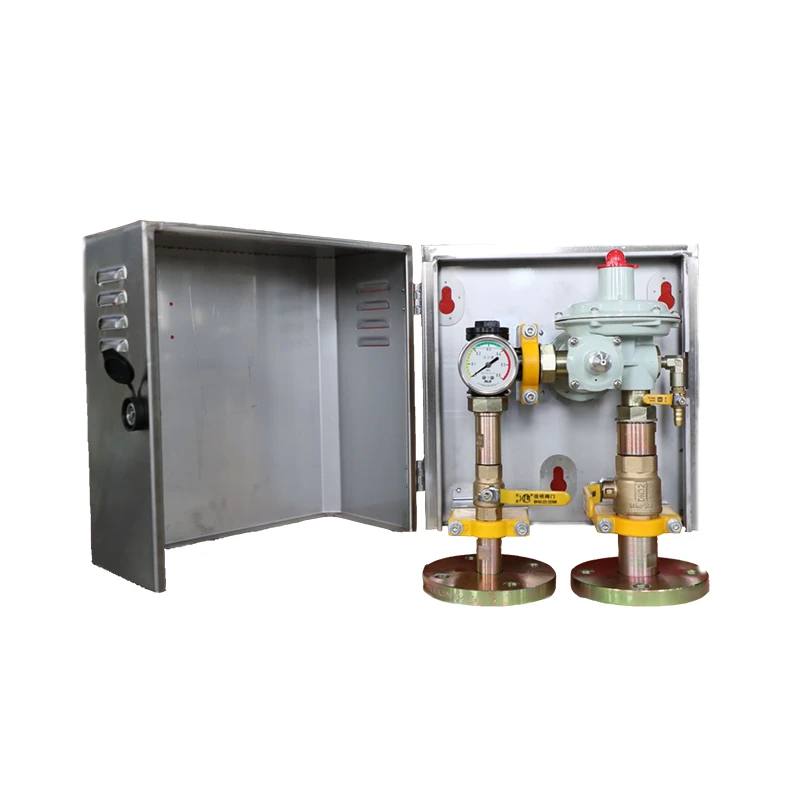
Dec . 04, 2024 09:23
Back to list
Natural Gas Heat Exchanger Design and Performance Analysis for Efficient Energy Transfer
Heat Exchangers for Natural Gas A Comprehensive Overview
Heat exchangers are crucial components in various industrial processes, including the natural gas industry. They play a pivotal role in transferring heat between two or more fluids, thereby optimizing energy consumption and enhancing system efficiency. This article aims to delve into the importance, types, and applications of heat exchangers in the natural gas sector.
The Importance of Heat Exchangers in Natural Gas
Natural gas is a vital energy source globally, used in electricity generation, heating, and as a feedstock for numerous chemical processes. The extraction, transportation, and processing of natural gas require significant energy, making the efficiency of these processes paramount. Heat exchangers help in recovering waste heat and reducing fuel consumption, which not only lowers operational costs but also minimizes environmental impact by reducing greenhouse gas emissions.
Types of Heat Exchangers
There are several types of heat exchangers used in the natural gas industry, each designed to accommodate specific operational needs and fluid properties. The most common types include
1. Shell and Tube Heat Exchangers These consist of a series of tubes, with one fluid flowing inside the tubes and another fluid circulating outside them within a shell. This design is highly effective for high-pressure applications and is widely used in gas processing plants.
2. Plate Heat Exchangers Comprising multiple thin plates, this type of heat exchanger offers a large surface area for heat transfer in a compact space. It is ideal for applications where space is limited and is effective for a range of fluids with varying temperatures.
3. Air-Cooled Heat Exchangers These utilize air as the cooling medium and are often employed in facilities where water is scarce or where environmental regulations limit water usage. They are essential in processes where natural gas needs to be cooled before further processing or transportation.
.
Applications in Natural Gas Processing
المبادل الحراري للغاز الطبيعي

Heat exchangers find numerous applications in the natural gas industry
- Gas Compression Stations In compression stations, heat exchangers help to cool the high-temperature gas produced by compressors before it is transported through pipelines. This cooling process not only ensures efficient gas transport but also protects downstream equipment from thermal stress.
- Gas Processing Plants In facilities where natural gas is processed and purified, heat exchangers are used to recover heat from the purification process. This recovered heat can be used to pre-heat incoming natural gas or for other heating requirements within the facility.
- LNG Processes In the liquefied natural gas (LNG) sector, heat exchangers are critical in the cryogenic processes that cool natural gas to liquefaction temperatures. Efficient heat transfer is vital to minimize energy consumption during LNG production.
- Power Generation In systems where natural gas is used as a fuel for power generation, heat exchangers are employed to recover waste heat from combustion processes, allowing for improved overall efficiency.
Challenges and Innovations
Despite the numerous benefits of heat exchangers, the natural gas industry faces challenges such as fouling, corrosion, and the need for maintenance. Fouling, the accumulation of unwanted material on the heat exchanger surfaces, can significantly reduce efficiency. Innovations such as advanced materials, enhanced designs, and automated cleaning systems are being explored to address these challenges.
Moreover, with the increasing focus on sustainability, the development of more efficient and environmentally friendly heat exchanger designs is a growing area of research. This includes the integration of renewable energy sources and the use of nanotechnology to improve heat transfer rates.
Conclusion
In conclusion, heat exchangers are indispensable in the natural gas industry, facilitating efficient energy use and enhancing process sustainability. Their ability to recover waste heat and improve overall system efficiency contributes significantly to the operational success of natural gas facilities. As technology continues to advance, the role of heat exchangers will undoubtedly evolve, leading to even more innovative solutions for optimizing natural gas processing and usage.
Latest news
-
Safety Valve Spring-Loaded Design Overpressure ProtectionNewsJul.25,2025
-
Precision Voltage Regulator AC5 Accuracy Grade PerformanceNewsJul.25,2025
-
Natural Gas Pressure Regulating Skid Industrial Pipeline ApplicationsNewsJul.25,2025
-
Natural Gas Filter Stainless Steel Mesh Element DesignNewsJul.25,2025
-
Gas Pressure Regulator Valve Direct-Acting Spring-Loaded DesignNewsJul.25,2025
-
Decompression Equipment Multi-Stage Heat Exchange System DesignNewsJul.25,2025

